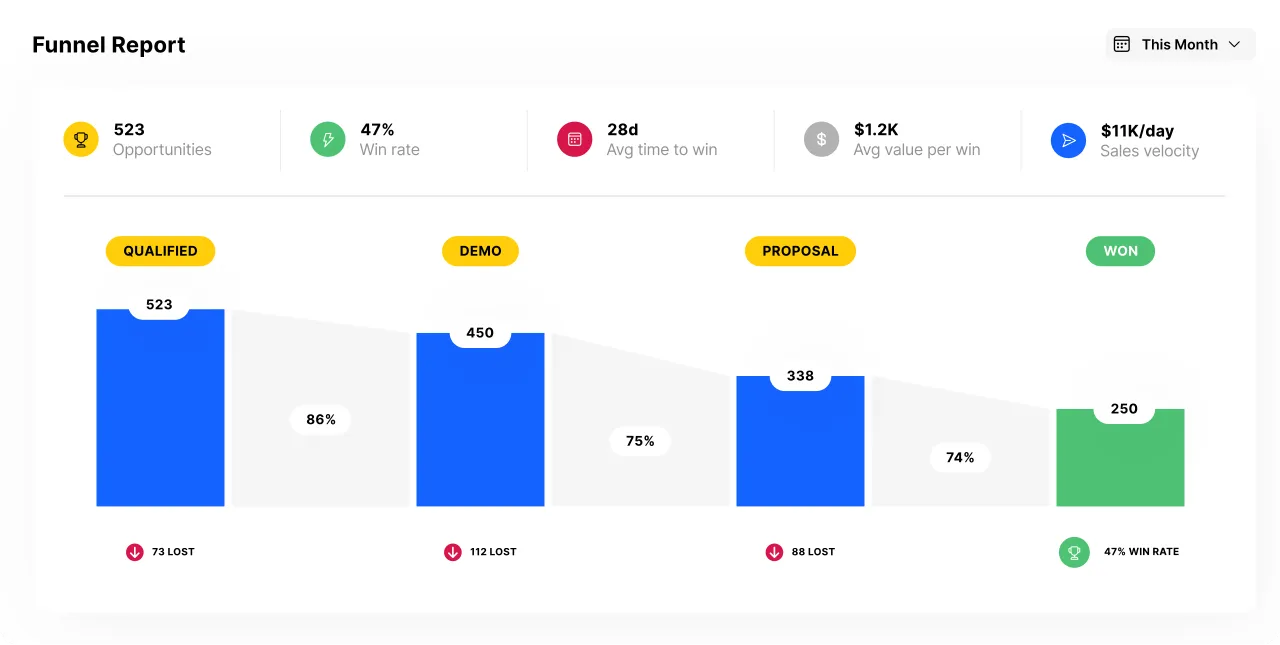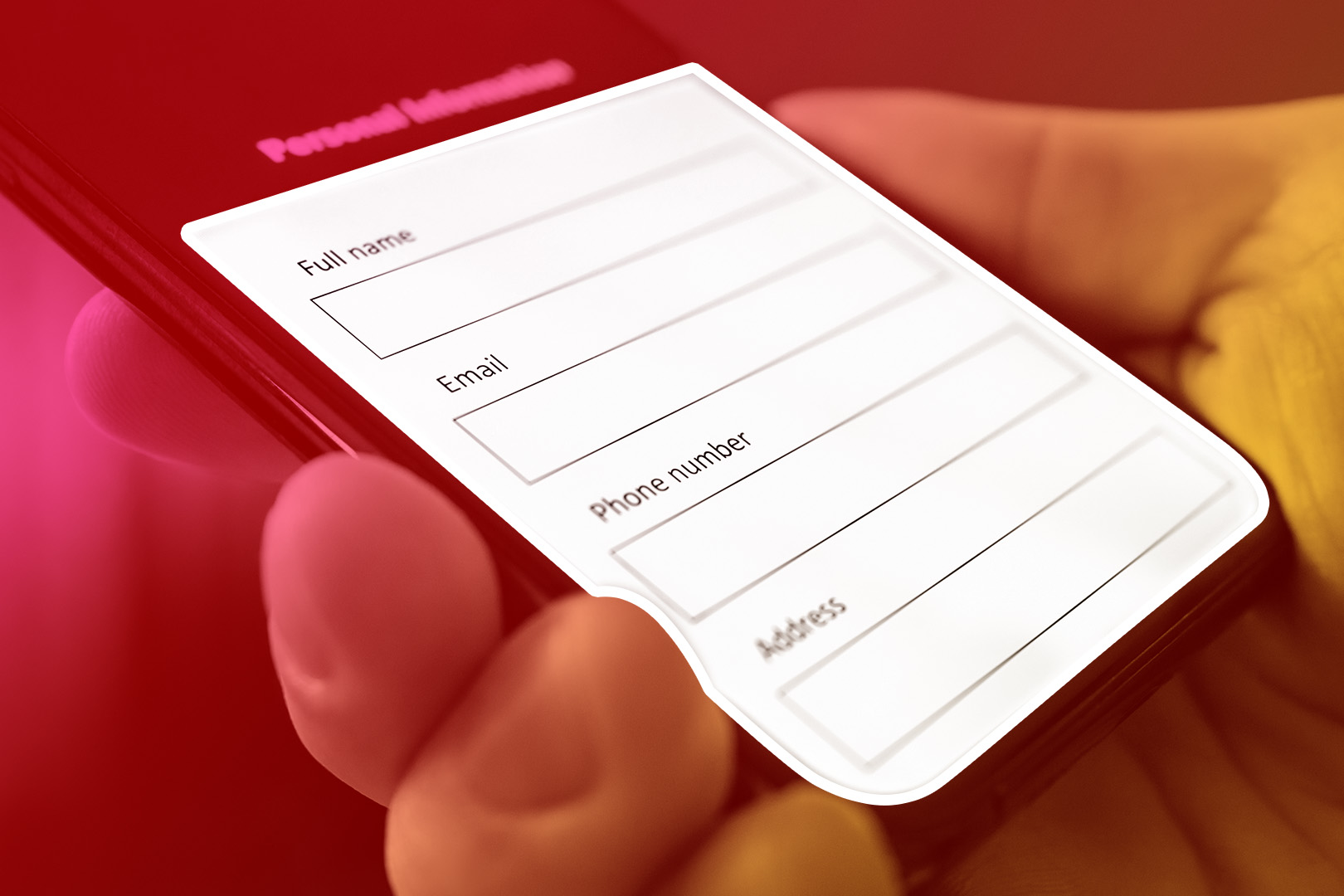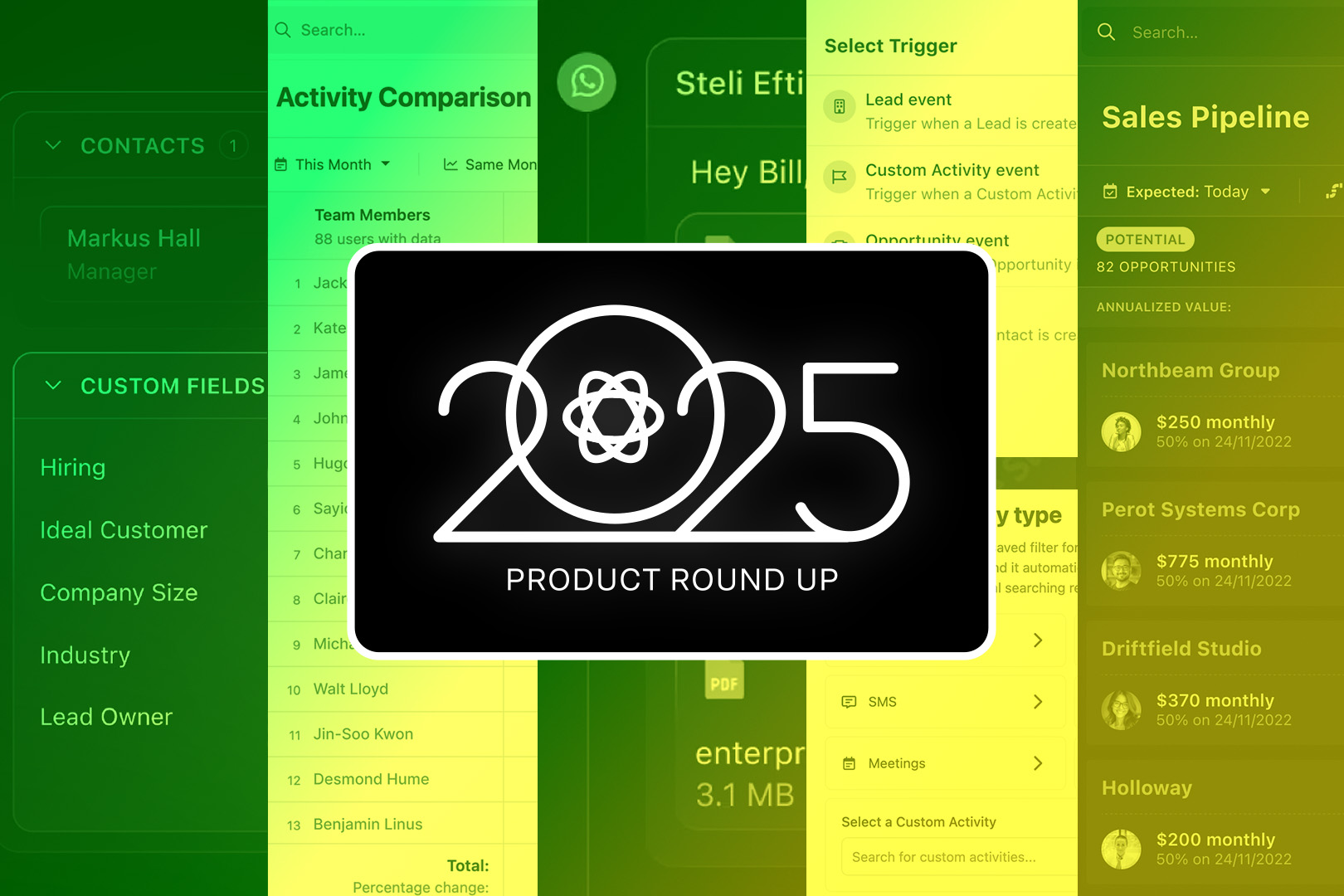Did you know that 79 percent of leads won't convert?
For most businesses, we know where the problem lies: a leaky sales funnel.
A leaky sales funnel is a huge stumbling block to increasing revenue and improving your bottom line. For this reason, businesses should look for ways to reduce or stop leaks in their sales funnels.
In this post, we'll share several ways to fix your leaky sales funnel. But before we do that, let’s look at a few factors that may make your sales funnel work against you.
What Causes a Leaky Sales Funnel?
A leaky sales funnel means qualified leads drop off and never reach your sales team. Several issues can cause a broken sales funnel, including:
Poor Value Proposition
A value proposition is an essential fundamental input to a business as it explains why people should buy your products instead of competitors'.
This is why it needs to be specific, clear, and relevant to the customer’s needs and priorities. If your value proposition is irrelevant or does not convey the intended purpose of your existence, it will undermine all your efforts to generate leads and even close deals.
Poor Processes
When gathering leads, encouraging every salesperson to use their strategies to find and convert prospects is a recipe for disaster.
It usually results in poor communication between sales and marketing teams.
Without a proper sales process, your sales funnel will have gaps. Your initial marketing efforts, such as logging customer interactions, sending follow-ups and reminders, and keeping data up-to-date, will likely be wasted.
No CTAs
CTAs direct potential customers to the following action after engaging with your content. When they are missing on your website or outreach methods, your customers won’t know what action to take, resulting in a loss of leads and revenue.
Conversion Funnel Bottlenecks
Every business has conversion bottlenecks that hamper the sales process. These factors include slow response rates, poor UX/UI, a lengthy onboarding process, or a lack of proper pricing methods. When not addressed, these bottlenecks prevent leads from converting correctly.

Inconsistency in Your Marketing Efforts
Customers automatically get suspicious and drop out of the sales funnel if you send contradicting information about your product and services.
For example, if the information shared on your website or blog posts differs from that on your email newsletters or ad copy, it can be a barrier to conversion. Instead, make sure your marketing and sales strategies are aligned. Use similar language and ensure the teams are working together.
8 Strategies to Optimize a Leaky Sales Funnel
As you can see, you probably know now what is causing low conversion rates, poor leads, missed sales targets, or inaccurate sales forecasts.
Luckily, you can fix this. Here are nine effective ways to help address leaks in your sales funnel.
Psst! Ready to conquer B2B sales challenges? Unveil the secrets of the B2B Sales Funnel here.
1. Attract the Right Customers
Do you know who your customers are? Do you know where they are dropping off in the sales funnel? And why are they dropping off?
This information helps you evaluate the lead generation process and uncover how often you cannot progress a customer to the next stage of the conversion funnel.
To attract the right buyers and help them convert, study your website content, landing pages, CTAs, emails, and stages in your sales process that are logged in your CRM.
What pages do your ideal customers spend the most time on? Look for ways to optimize those pages and streamline the buyer's journey.
Other factors to consider are your UX/UI, product features, and creating more robust buyer personas.
Ensure your sales pipeline is straightforward and helps prospects enter (and stay!) in the funnel. These tips will prevent you from wasting time and money on prospects who don't fit your ideal customer profile.
2. Use Data to Improve and Analyze the Sales Process
Your sales process cannot be successful without proper data usage and analysis. Data exposes where your prospects are dropping off, shows which features they find hard to use, and provides insights into what works and what doesn't.
For example, are webinars very popular? Do templates attract the right types of leads? This data is crucial to plugging leaks in your funnel.

But where can you collect this data? Your CRM tool is the first place to look for data. Google Analytics or behavioral tools can also provide you with data for sales analysis.
Harnessing your prospect data helps remove uncertainties in your marketing funnel (especially if you are unsure what is causing the leak). With the correct data, you can easily monitor your sales funnels and the metrics you want to hit and improve your lead qualification process.
Ready to improve lead conversion? Dive into our article on MQL vs. SQL.
3. Improve Your Value Proposition
We mentioned before that an irrelevant value proposition is one cause of sales leakage. Review your value proposition to fix leakage and see if it aligns with your business goals and customer needs.
One tip is to examine your marketing and sales messages. Does your business communicate in a way that answers the pain your customers face? How about your sales pitches? Do they make you look different from your competitors? Why do you give customers to buy from you and not the competitor?
Reevaluate your value proposition and ensure it aligns with your business goals. Make sure it is still usable, reliable, and convenient. If not, rework it or do a complete overhaul. This is the best way to attract potential customers and help them convert.
Let’s see this example of a solid value proposition from Asana for inspiration.

4. Refine Your Metrics and KPIs
There might be instances when your objectives and KPIs aren’t specific, or your sales team doesn’t understand why they matter and even how to use them.
Your sales team is left to figure out what to do, and they may end up with contradicting data or metrics that don’t help them guide prospects through your sales funnel.
For these reasons, you must refine your metrics and KPIs to prevent and address funnel blockage.
By refining your metrics and KPIs, you will help sales and marketing teams understand their objectives better and bring them closer to a shared goal or consensus to work towards achieving a common goal.
5. Get Organized with the Right CRM Tool
CRM tools have many benefits. They can help expose potential leaks in your sales funnel, monitor prospect behavior, analyze and interpret data, perform A/B testing, and even analyze competitors.
With the information provided by CRM tools, businesses can settle on ways of improving customer acquisition by cleaning up their database, targeting the right customer, and improving service delivery. The right CRM tool also helps you to be pragmatic in your sales and marketing efforts.
6. Improve Your Lead Nurturing Strategies
To improve conversion rates, you need a solid lead nurturing strategy at every stage of the funnel. Unfortunately, this is where most businesses make serious mistakes. They fail to nurture leads, with merely 35 percent of brands boasting a lead-nurturing solid strategy.
Failure to follow up properly, respond early to customer inquiries, and address customer complaints can lead to a drop in the sales funnel.
To have a solid lead nurturing strategy, make good use of automation. Consider also:
- Sharing customer testimonials and reviews
- Using proper call to action
- Using storytelling to convey your message
- Sharing relevant case studies
- Ensuring customers can ask questions with ease and receive answers promptly
7. Experiment and Split Test

The customer acquisition process is complex, full of distraction, and is constantly changing to adapt to new trends. As a business, you must determine how to meet these new demands and changes.
The best way is to test and experiment with different strategies and methods throughout your sales funnel.
Your shopping cart or pricing page are a few metrics to split test. You may change your features, pricing, or tools to see what works.
Alternatively, you may add free trials or demos to your landing page or CTAs to see how your visitors react. A few tweaks to your sales pitches, CTAs, or image position may significantly impact your conversion rates.
8. Improve the Customer Onboarding Experience
Onboarding new customers is a challenge. No wonder 90 percent of subscribers still feel businesses aren’t better at it. The result is low conversion rates.
A case example is when customers sign up for your free trial or newsletters but fail to become paid customers.
It might be that your sales team didn’t engage properly with them to ensure conversion or received no response to questions about why they should upgrade. If they receive a poor customer experience before converting, they're unlikely to become paying customers!
In such a scenario, make the customer's inquiry process seamless and help them see why they need the product. If the problem is with the sales team, train your team on the best ways to onboard a customer. You may also improve your product pricing page or incorporate customer suggestions into your sales process.
In addition to the strategies mentioned for optimizing your sales funnel, utilizing tools like the Close Sales Funnel Calculator can provide significant benefits. This tool helps analyze your sales funnel by visualizing where leads are dropping off and identifying the stages needing improvement.
By incorporating this calculator into your analysis, you can gain precise insights to effectively plug leaks in your sales funnel, thereby enhancing the overall efficiency of your sales process.
Ready to Fix Your Funnel?
A leaky sales funnel is every business’s nightmare.
It can make you look inept, increase operating costs, and cause revenues to be impacted. It can also make great marketing strategies look like they don't work.
Maintaining a solid sales funnel is an ongoing process that requires continuous monitoring, evaluation, and adaptation. Develop a culture of continual improvement to identify problems more effectively and correct them as needed.













